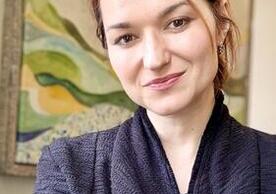Department Statement on the Anniversary of Russia’s Invasion of Ukraine
On the anniversary of Russia’s invasion of Ukraine, the faculty and students at the Department of Slavic Languages and Literatures reassert their condemnation of this brutal and unjust war. We mourn its victims. We are appalled at Russia’s attacks on Ukrainian civilians and reports of human rights violations. We call for an end to Russia’s illegal occupation of Ukraine and express our hopes for imminent and lasting peace.
Department Statement on Russia’s Invasion of Ukraine
The Department of Slavic Languages and Literatures joins colleagues at ASEEES, AATSEEL, other Slavic departments, and the global academic community, in strongly condemning Russia’s unprovoked military invasion of Ukraine. We are appalled by mounting human losses and the suffering of civilians. We stand in solidarity with the people of Ukraine bravely defending their sovereignty and their democratically elected government. We support all those who oppose Russia’s aggression, including the citizens of Russia who do so at great personal risk. We call for the return of peace and safety to our colleagues, friends, and families in the region, and hope for the restoration of open dialogue, cultural links, and intellectual exchange that is vitally threatened by this global crisis.
For information about ways to help Ukraine, see the list compiled by Prof. Timothy Snyder
Resources for journalists, scholars, and the general public are also available through the Harvard Ukrainian Research Institute
For President Salovey’s statement on Yale’s response to the invasion, see here.
————————————————————————
The Department of Slavic Languages and Literatures at Yale University, which is one of the oldest programs of its kind in the United States, was born of the vision of two of the most remarkable figures in the University’s twentieth-century history. In 1946, William Clyde DeVane, the eminent long-term Dean of Yale College and Professor of English, established the Department at the urging of René Wellek, who was appointed Professor of Slavic and Comparative Literature that year and who was soon to emerge as one of the greatest figures in twentieth-century literary studies. Professor Wellek took over the chairmanship of the Department from Dean DeVane in 1948, and following a series of new appointments in the early 1950s, the Department began its ascent to national prominence.
The current members of the Department continue its traditions of engaging in innovative teaching and scholarship on the literatures, languages, and cultures of the Slavic peoples. The Department offers both undergraduate and graduate degrees, with several possible tracks in each, but with a primary emphasis on Russian literature and culture, and especially film.
Slavic department faculty are recognized leaders in their scholarly fields both nationally and internationally, and have established themselves as popular and influential teachers on campus. The Department’s varied course offerings are enriched by the extensive Slavic holdings in the Yale University Library system, which is one of the greatest research collections in the world.
